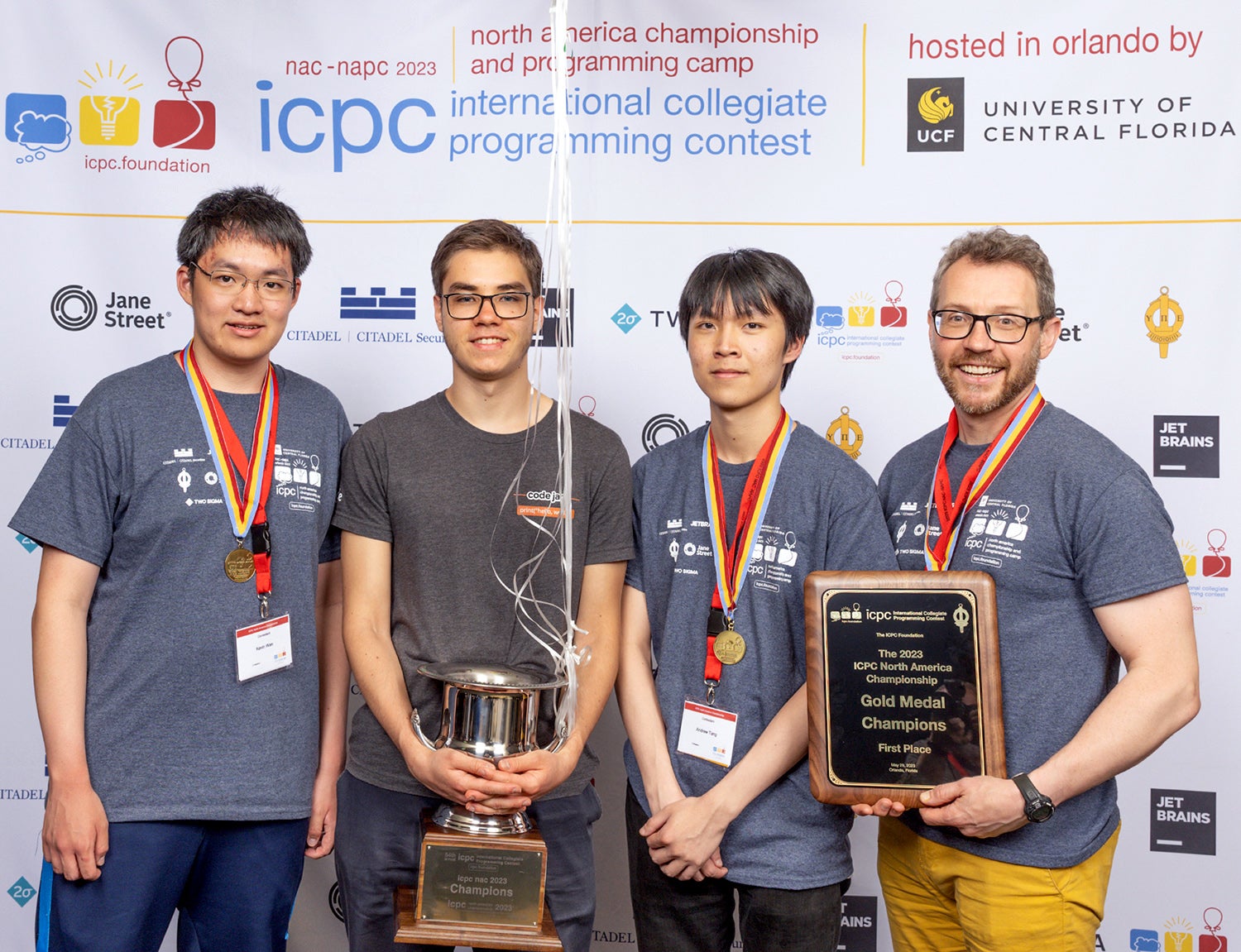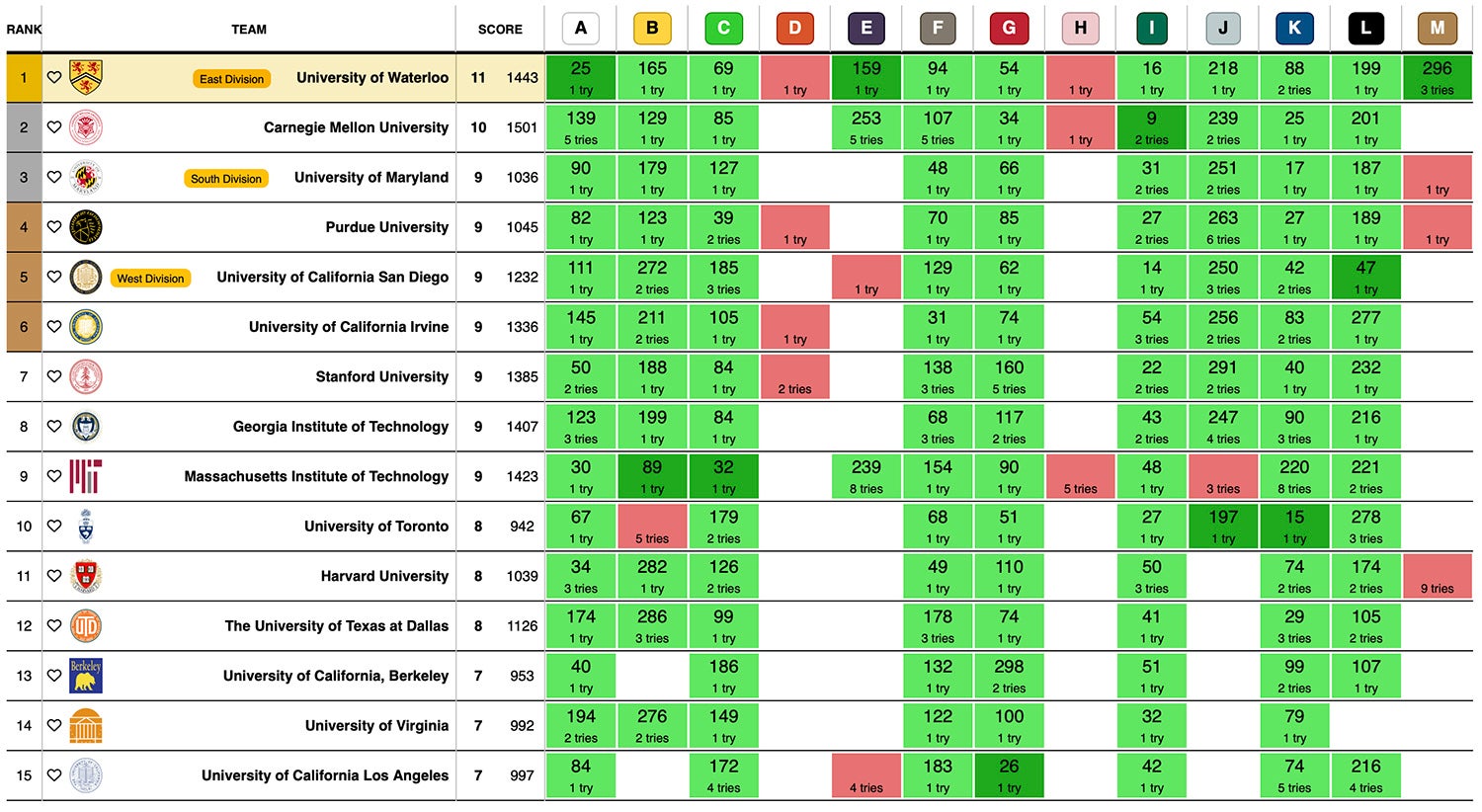Waterloo does it again.
Just as a trio of coders had in 2021, a team of three Waterloo algorithmic programmers has topped the competition at the 2023 International Collegiate Programming Contest North America Championship held on May 29, 2023 at the University of Central Florida.
Waterloo overcame the competition, including trios of programmers from Stanford, Carnegie Mellon University, MIT, Harvard, and the University of Toronto.
Ramazan Rakhmatullin, a master’s student studying combinatorics and optimization; Andrew Qi Tang, a third-year computer science and combinatorics and optimization student; and Kevin Wan, a fourth-year computer science and combinatorics and optimization student finished solidly in first place at the annual North America programming contest.

Left to right: Kevin Wan, Ramazan Rakhmatullin, Andrew Qi Tang, and Cheriton School of Computer Science Professor Troy Vasiga celebrate their first-place win at the 2023 ICPC North America Championship hosted by the University of Central Florida (Photo credit: Michael Roytek)
“We could not be more pleased with how well Ramazan, Andrew and Kevin performed,” said Cheriton School of Computer Science Professor Troy Vasiga, who coached the team with his colleague Professor Ondřej Lhoták. “Our coders not only solved 11 of the contest’s 13 problems — more than any other team — but they were the only team to solve three of the problems first among the 51 teams of programmers from universities across North America. As the top team at the North America competition, they are coming in strong to compete at the ICPC World Finals, which will be held in Sharm El-Sheikh, Egypt in November.”
2023 ICPC North America Champions, top 15 of 51 teams

Dark green indicates the team was first to solve the problem, light green indicates the team solved the problem, and red that the problem was attempted but not solved.





